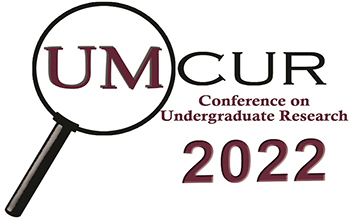The Progression of Pernicious Political Polarization by Traditional Media in Antebellum America: An Analysis of How Newspapers Used Racial Intermarriage to Stoke Division within the Abolition Debate
Project Type
Presentation
Faculty Mentor’s Full Name
Claire Arcenas
Faculty Mentor’s Department
History
Abstract / Artist's Statement
Media plays a significant role in public perception of social movements. Today, we have a 24-hr news cycle that is particularly powerful when it comes to shaping the narrative of current events and social issues. In order to maintain viewership, some popular mainstream media outlets use their platforms to stoke the fires of pernicious political polarization. Before the advancement of technology, newspapers held that power. Newspapers leading up to the Civil War used their power to sway public opinion and fuel polarization surrounding racial intermarriage within the abolition movement in order to sell papers and gain notoriety. My paper asks and answers the following question: How did traditional media cover the crossover between racial intermarriage and abolition? My research began by looking at the evolution of United States anti-miscegenation laws. I found that a handful of abolitionists used the topic of racial intermarriage and the morality of these laws to make their points. I hypothesized that, much like today, newspapers in Antebellum America used their platforms to stoke divisions within the abolition movement and its opposition. To test my hypothesis, I analyzed articles pertaining to intermarriage within abolition and its actors from several newspapers from both the North and South leading up to the Civil War. I found several newspapers and their editors added to the already polarizing topic of intermarriage, its morality, and legality. I then analyzed these newspaper articles as well as pamphlets and records of abolition activists who both opposed and supported racial intermarriage. My paper concludes by gesturing to the parallels between antebellum era traditional media’s role in political, social movements and the role modern media outlets play in political, legal, and social discourse.
Category
Humanities
The Progression of Pernicious Political Polarization by Traditional Media in Antebellum America: An Analysis of How Newspapers Used Racial Intermarriage to Stoke Division within the Abolition Debate
UC 330
Media plays a significant role in public perception of social movements. Today, we have a 24-hr news cycle that is particularly powerful when it comes to shaping the narrative of current events and social issues. In order to maintain viewership, some popular mainstream media outlets use their platforms to stoke the fires of pernicious political polarization. Before the advancement of technology, newspapers held that power. Newspapers leading up to the Civil War used their power to sway public opinion and fuel polarization surrounding racial intermarriage within the abolition movement in order to sell papers and gain notoriety. My paper asks and answers the following question: How did traditional media cover the crossover between racial intermarriage and abolition? My research began by looking at the evolution of United States anti-miscegenation laws. I found that a handful of abolitionists used the topic of racial intermarriage and the morality of these laws to make their points. I hypothesized that, much like today, newspapers in Antebellum America used their platforms to stoke divisions within the abolition movement and its opposition. To test my hypothesis, I analyzed articles pertaining to intermarriage within abolition and its actors from several newspapers from both the North and South leading up to the Civil War. I found several newspapers and their editors added to the already polarizing topic of intermarriage, its morality, and legality. I then analyzed these newspaper articles as well as pamphlets and records of abolition activists who both opposed and supported racial intermarriage. My paper concludes by gesturing to the parallels between antebellum era traditional media’s role in political, social movements and the role modern media outlets play in political, legal, and social discourse.
